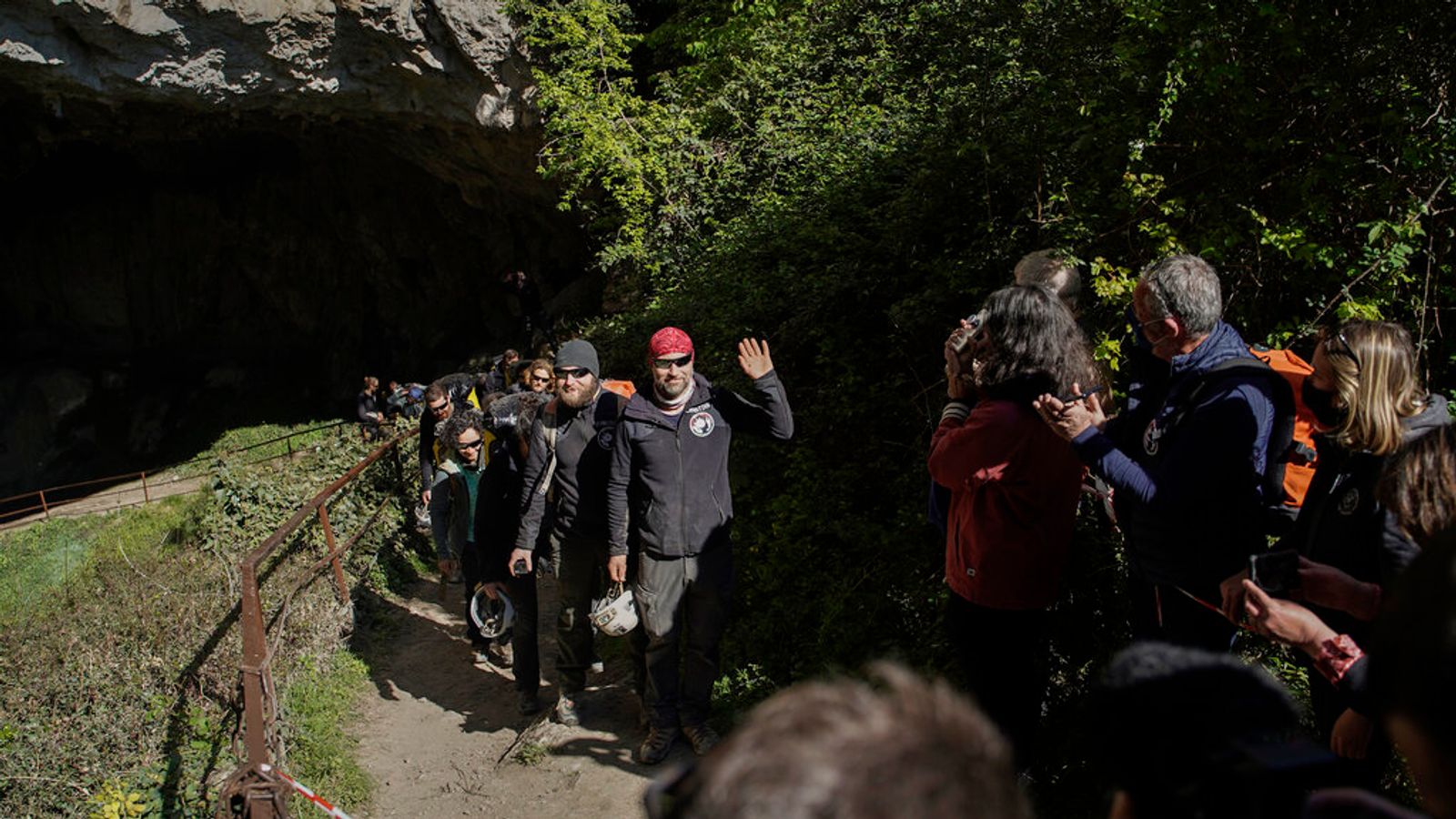Fifteen people have emerged from a cave in France after six weeks there in isolation for an experiment – only for most of them to say they wanted to go back in.
The group entered the vast Lombrives cave in the Pyrenees mountains south of Toulouse for an experiment dubbed “Deep Time”, during which they had no phones, watches or natural light.
The eight men and seven women, aged 27 to 50, were taking part in a study investigating the effects of extreme isolation, and had to adapt to a constant temperature of 12C and 95% humidity – with only their tents for privacy.
With no clocks, the participants counted their days by sleep cycles – and many of them miscalculated how long they had been there and thought they had another week to 10 days to go.
Scientists monitoring them were forced to enter the cave to tell the group they would be coming out.
With big smiles on their pale faces, the 15 left the cave to a round of applause while wearing special glasses to protect their eyes after so long in the dark.
“It’s really warm!” said one.
But although the participants looked visibly tired, two-thirds of them expressed a desire to remain underground a bit longer so they could finish group projects started during the expedition, Benoit Mauvieux, a chronobiologist involved in the research, said.
The cave dwellers had no contact with the outside world, no updates on the pandemic or any communication with friends and family above ground.
Scientists at the Human Adaption Institute leading the 1.2 million-euro (£1m) project say the experiment will help them better understand how people adapt to drastic changes in living conditions and environments, something much of the world can relate to due to COVID.
The researchers monitored the group’s sleep patterns, social interactions and behavioural reactions via sensors.
The sensors included a tiny thermometer inside a capsule that participants swallowed like a pill. It then measured body temperature and transmitted data to a portable computer until being expelled naturally.
Project director Christian Clot said: “It’s really interesting to observe how this group synchronises themselves.”
He added that working together on projects and organising tasks without being able to set a time to meet was especially challenging.






















